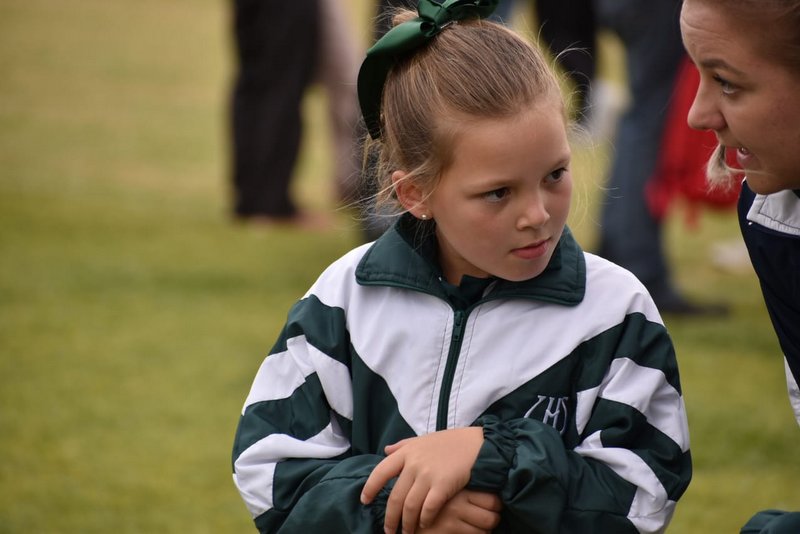Whether the driving force is a passion for the game of hockey, making a positive impact on kids or providing kids an opportunity to play, coaching is a labour of love.
One of the key ingredients to fuelling that love for coaches and creating a great team environment is having “coachable” players.
“When I look at kids I like to coach, I like the kids that come to the Astro, and they have a smile on their face,” says Mr Calvin Beck, Union High Schools’ Head of Hockey. “They want to improve their hockey skills, and they just work hard.”
Working hard, showing a desire to improve and having a positive attitude are likely on every coach’s description of “coachable” kids and are a great start for any player looking to have an impact on their team. Here are four more characteristics players can work on developing this season to become more coachable.
Listen Up
“Listening, to me, is very important,” says Mr Beck. “When you get kids that are listening and trying to put into action what the coach is saying, it leads to better coaching, it leads to players getting better because they are listening and they’re engaged and trying to improve their skills.”
Knowing that their team is listening and trying to implement the instruction is also motivating for coaches.
“It makes the coach a little sharper because the words coming out of their mouth take on a little more importance,” says Mr Beck. “If they see their kids are listening and want to learn, that puts some pressure on the coach, which is good.”
Learning how to listen and be attentive to others also translates far beyond hockey.
A Two-Way Street
To young players, listening may seem like a one-way street. The coach(es) talk and players listen. How players respond though, even if it’s non-verbal, plays a key role in how coaches perceive their listening.
“I love the kids that you give them instruction and you just see that willingness to listen,” says Mr Beck. “They make eye contact with you. They’re nodding their head, giving positive affirmation. As weird as it sounds, even though we’re adults as coaches, when you get that feedback, it makes me feel good.”
There are also situations in which kids listen but don’t understand what the coach is saying.
“Part of being a coachable player is not being afraid to ask a question or if you don’t understand something, ask for clarification,” says Mr Beck. “Whether it’s how to do a drill or what you are trying to explain while working on a system or concept, to me, when I hear a kid ask any question, that’s a sign of total engagement and total coachability because it means they care.”
Coaches also play a key role in this area. Not every player, especially at the younger ages, will have the confidence to ask a question in front of the entire team so it’s helpful for coaches to create an open environment where questions are encouraged.
Understanding Mistakes
“Hockey is a game of mistakes,” says Mr Beck. “Negative stuff is going to happen.”
The most important thing is how kids respond to those mistakes. Players must learn to, first, take responsibility for their own mistakes and then, be open to feedback on how to improve going forward.
“When I talk about it with kids and teams that I coach, it’s easy to say something and for them to nod their heads,” says Mr Beck. “When it actually happens, it’s a totally different situation.”
The first reaction for kids is often to avoid being the centre of attention when something negative happens. They’ll look to point fingers or blame others. That type of response leads to compounding mistakes because it hurts the team and limits players’ ability to learn from mistakes or receive feedback from coaches.
Learning how to properly respond to mistakes usually takes some guidance and direction from coaches and parents.
Support and Encourage Teammates
Just as important as players responding properly to their own mistakes is how they react when a teammate commits an error.
“A coachable kid to me is someone who is unselfish,” says Mr Beck. “They encourage their teammates. They’re focused on not just themselves. They’re thinking of others.”
A simple act such as giving a teammate a stick tap on the shin pads and a quick word of encouragement can have a huge impact on the entire team.
“It just creates a whole new environment,” says Mr Beck. “It promotes creativity when the kids are playing the game. It discourages ‘play it safe’ hockey because kids know it’s okay to make a mistake. I just saw my teammate do it, and I saw another teammate support him.”
“To see mistakes made and watch everyone encourage each other, and to watch the better skilled players still make passes to the less skilled players, helping them develop, to me, there’s nothing better than coaching a group like that.”




